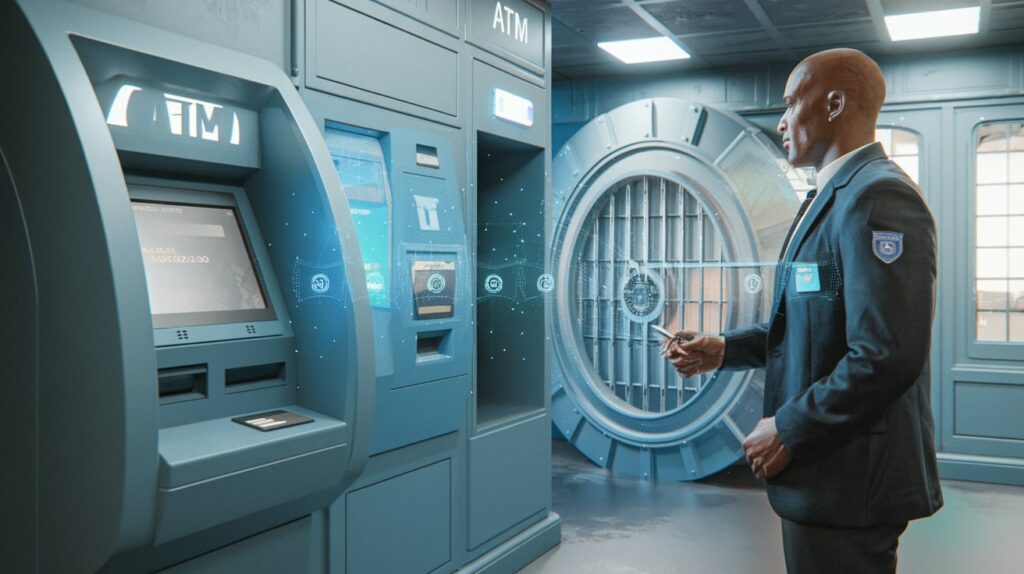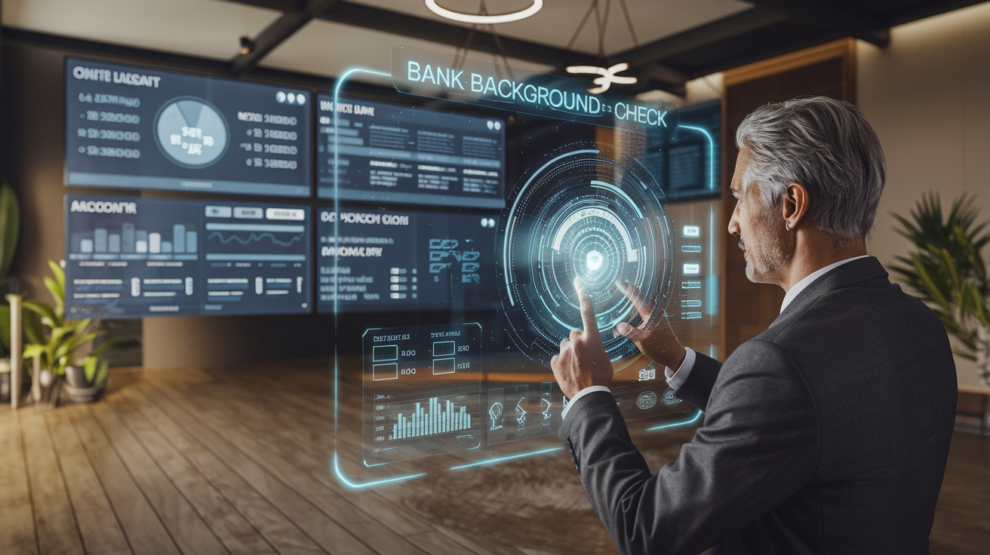In 2025, the banking sector faces unprecedented scrutiny and complexity in hiring. With digital transformation, regulatory changes, and growing threats of fraud, the stakes for getting background checks right have never been higher. A robust background check process is no longer just a best practice—it’s a non-negotiable necessity for banks seeking to protect their reputation, customers, and bottom line
Table of Contents
Imagine onboarding a promising new employee, only to discover months later a hidden criminal record or falsified credentials. The fallout—financial losses, regulatory penalties, and reputational damage—can be severe. The banking sector, with its sensitive financial dealings and access to customer data, is a prime target for individuals with malicious intent. Inadequate background checks can lead to fraud, data breaches, and even compromise national security.
What Is a Bank Background Check?
A bank background check is a review of your financial, personal, and sometimes even criminal history performed by financial institutions before granting you access to certain services. This process helps banks verify your identity, assess your risk level, and ensure compliance with federal regulations.
The Risks of Inadequate Background Checks
- Fraud and Financial Crime: Gaps in verification can allow individuals with a history of fraud or embezzlement to slip through.
- Regulatory Non-Compliance: Failure to meet stringent regulatory standards can result in hefty fines and sanctions.
- Reputational Damage: News of internal fraud or hiring scandals can erode customer trust and investor confidence.
What Should a Comprehensive Bank Background Check Include in 2025?

A modern bank background check is multi-layered, going far beyond basic resume verification. Here are the essential components:
1. Identity Verification
- Documents Checked: Aadhaar, PAN, passport, voter ID, or driver’s license.
- Purpose: Confirms the candidate’s identity and prevents impersonation or synthetic identity fraud.
2. Criminal Record Check
- Scope: National and state-level databases, proprietary court records.
- Why It Matters: Detects any criminal history, especially financial crimes, which are critical red flags in banking roles.
3. Credit History Verification
- Purpose: Assesses financial stability and potential risk for roles involving cash handling or financial decision-making.
- How: Pulling credit reports to identify defaults, bankruptcies, or suspicious financial activity.
4. Education Verification
- Process: Directly contacting educational institutions to confirm degrees, certifications, and periods of study.
- Why: Prevents hiring based on fraudulent or exaggerated academic claims.
5. Employment History Verification
- Method: Reaching out to previous employers to validate job titles, responsibilities, and tenure.
- Benefit: Confirms professional reliability and uncovers gaps or inconsistencies.
6. Reference Checks
- Approach: Speaking with professional and personal references to assess character, work ethic, and integrity.
- Value: Offers a holistic view of the candidate’s suitability for sensitive banking roles.
7. Address Verification
- How: Checking residential history to ensure accurate contact information and identify inconsistencies.
- Importance: Helps in risk profiling and compliance with KYC (Know Your Customer) norms.
8. Additional Checks
- Drug Screening: For roles with high responsibility or regulatory requirements.
- Professional License Verification: For specialized positions requiring certifications.
- Driving Records: For roles involving company vehicles or logistics.
The Digital Transformation of Background Checks in 2025

AI and Automation
- AI-Driven Analysis: Artificial intelligence now scans vast datasets, distinguishing between isolated incidents (e.g., an old social media post) and patterns of risky behavior.
- Faster Turnaround: Automation reduces verification time from weeks to days, or even hours, streamlining the hiring process.
- Continuous Monitoring: Instead of a one-time check, banks can now monitor employee records in real-time for emerging risks.
Digitization of Public Data
- Easier Access: Digitized government records (NIDs, licenses, court databases) make verification more efficient and comprehensive.
- Mobile and Remote Verification: Digital platforms enable seamless onboarding and checks for remote or global hires.
Regulatory Compliance and Policy Best Practices

1. Drafting a Background Check Policy
- Elements: Define what checks are performed, on whom, and at what stage of hiring.
- Compliance: Ensure alignment with local, state, and federal laws, including consent requirements and data privacy mandates.
2. Candidate Consent and Transparency
- Requirement: Obtain written consent before conducting checks, typically via digital applicant tracking systems.
- Candidate Rights: Provide candidates with copies of their reports and an opportunity to dispute findings.
3. Handling Negative Findings
- Process: If adverse information is found, inform the candidate and allow them to explain or contest the results before making a final decision.
Privacy Challenges in Digital Background Screening
- Data Security: With more sensitive data being processed digitally, robust cybersecurity is essential to prevent breaches1.
- Regulatory Complexity: Navigating GDPR, India’s DPDP Act, and other global data laws requires careful data handling and localization1.
- Algorithmic Bias: AI-driven checks must be regularly audited to prevent discrimination or unfair outcomes.
(FAQs) Bank Background Check
What does an HR look for in a bank background check?
HR professionals look for criminal history, employment and education verification, reference checks, credit reports, and sometimes drug testing or license verification to ensure the candidate is trustworthy and qualified for the banking sector.
How is current employment verified?
Current employment is typically verified by requesting documents such as relieving letters, full and final statements, or salary slips from the candidate’s previous employer.
Can salary be verified during background checks?
Yes, salary can be checked using official documents like salary slips, pay stubs, or full and final settlement statements from previous employers2.
What happens if a background check reveals negative findings?
If negative findings are discovered, the candidate is notified and given a chance to explain or dispute the results. If the explanation is unsatisfactory or the findings are severe (e.g., financial crimes), employment may be denied or terminated.
Conclusion
In 2025, bank background checks are a sophisticated blend of technology, compliance, and human judgment. By investing in comprehensive, ethical, and tech-enabled verification processes, banks can safeguard their operations, uphold regulatory standards, and, most importantly, maintain the trust of their customers and stakeholders. In a world where reputation and security are everything, robust background checks are the foundation of a resilient banking workforce.
Do Follow Dragcast on Social Media For More Such Content.












Add Comment